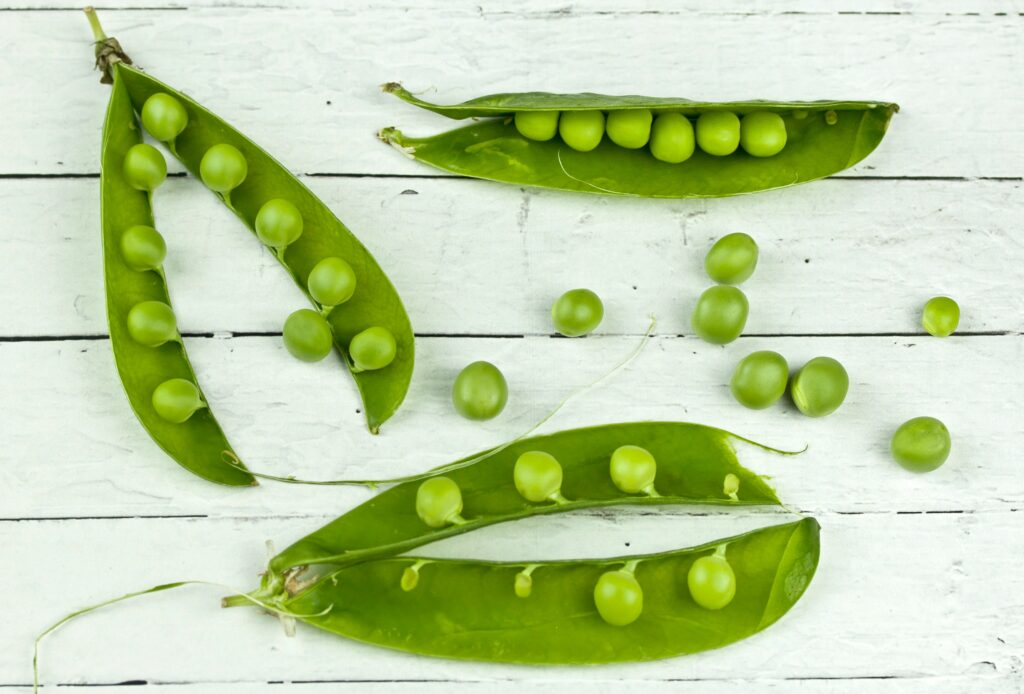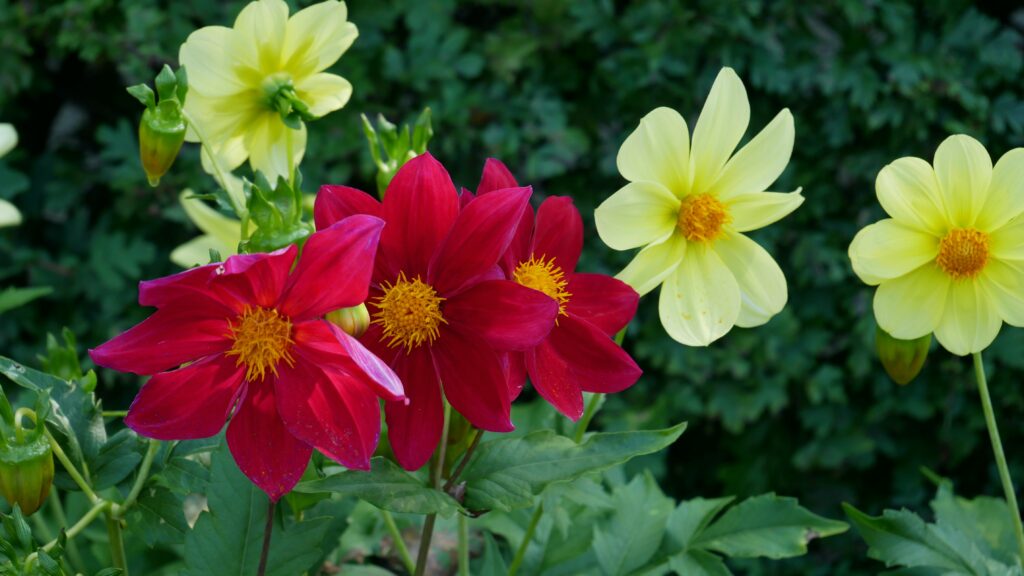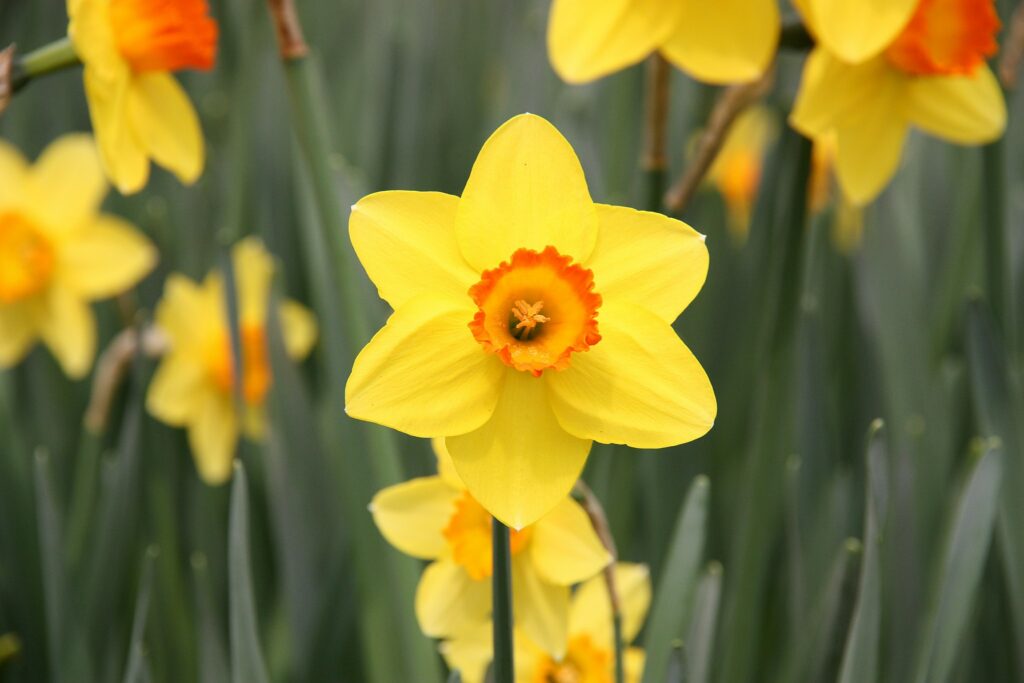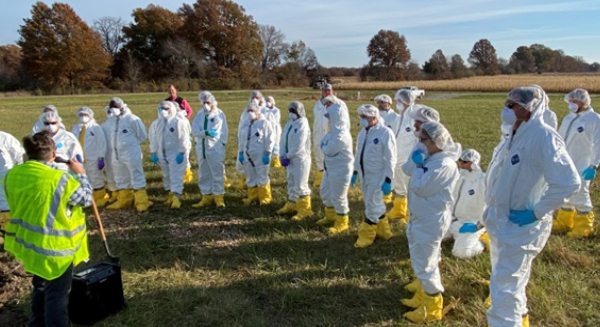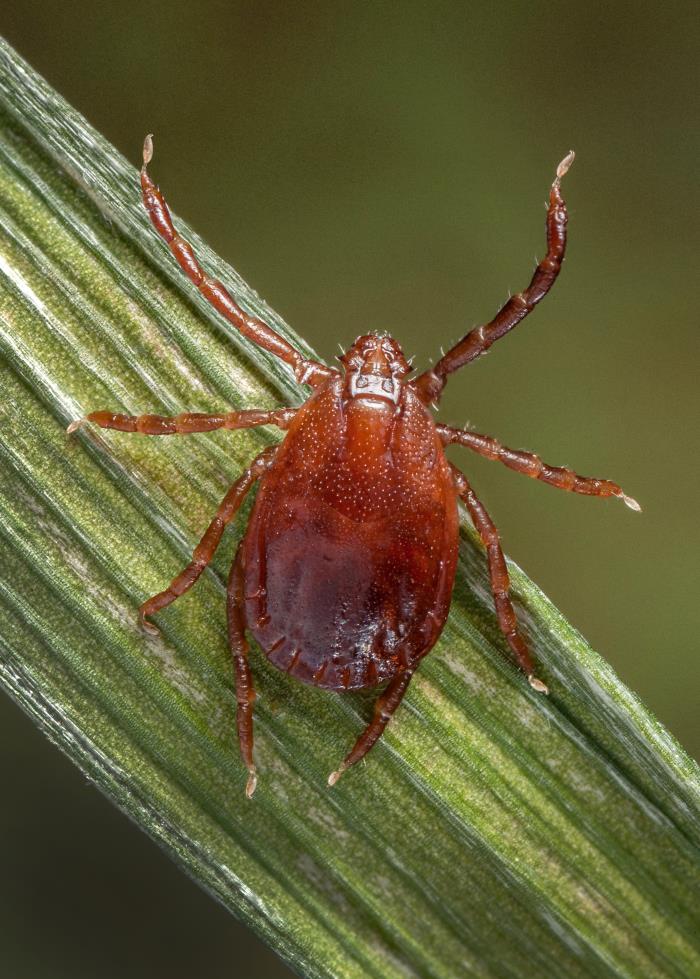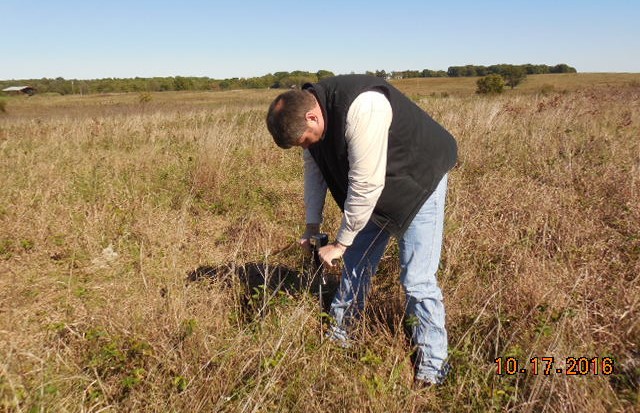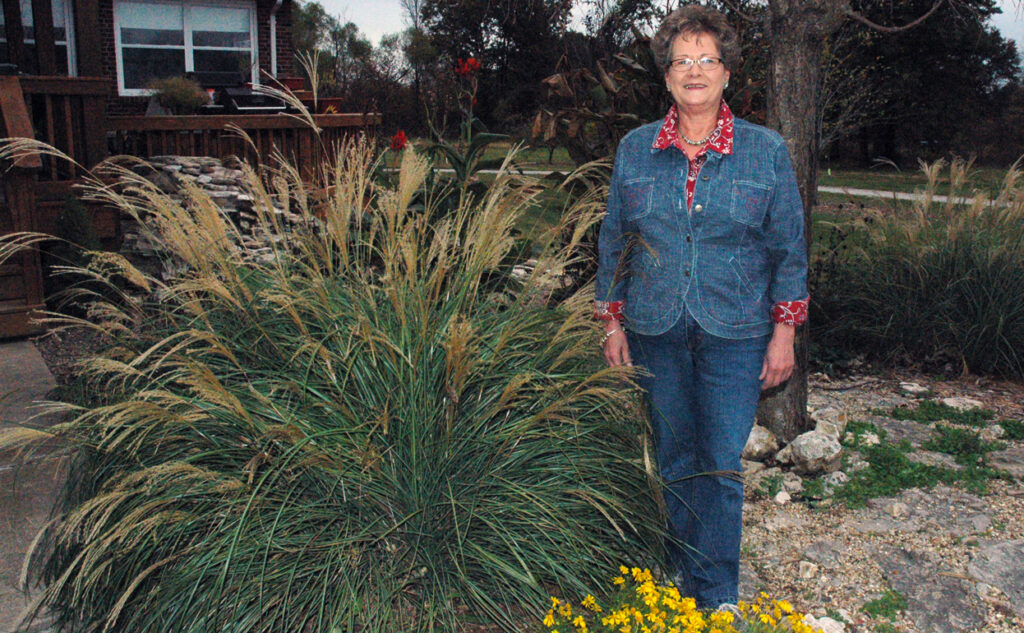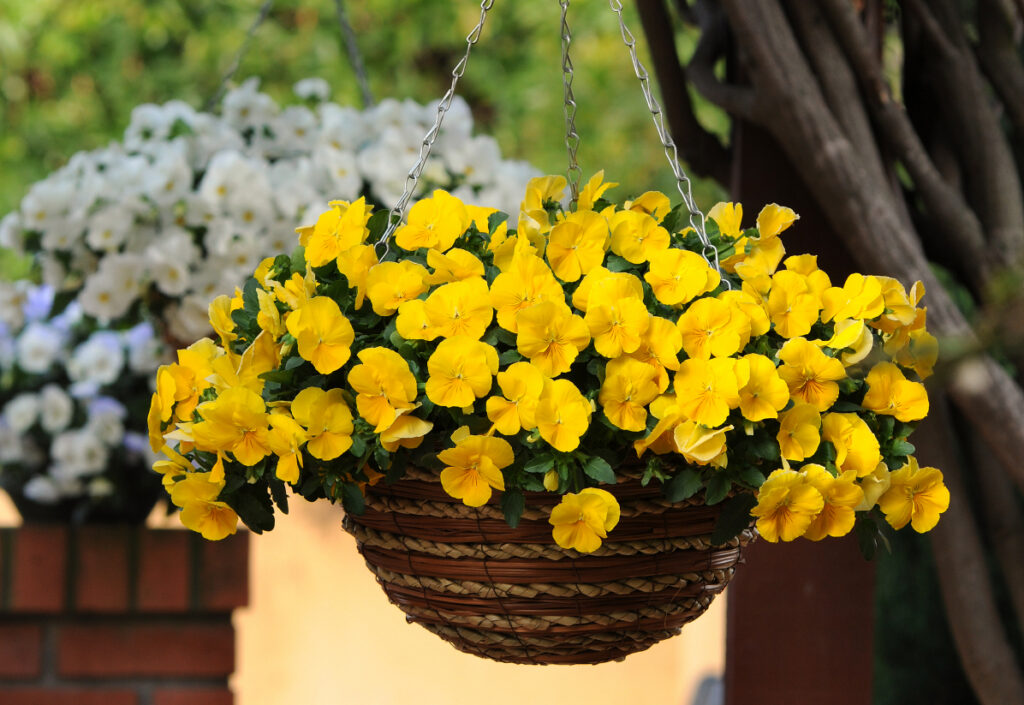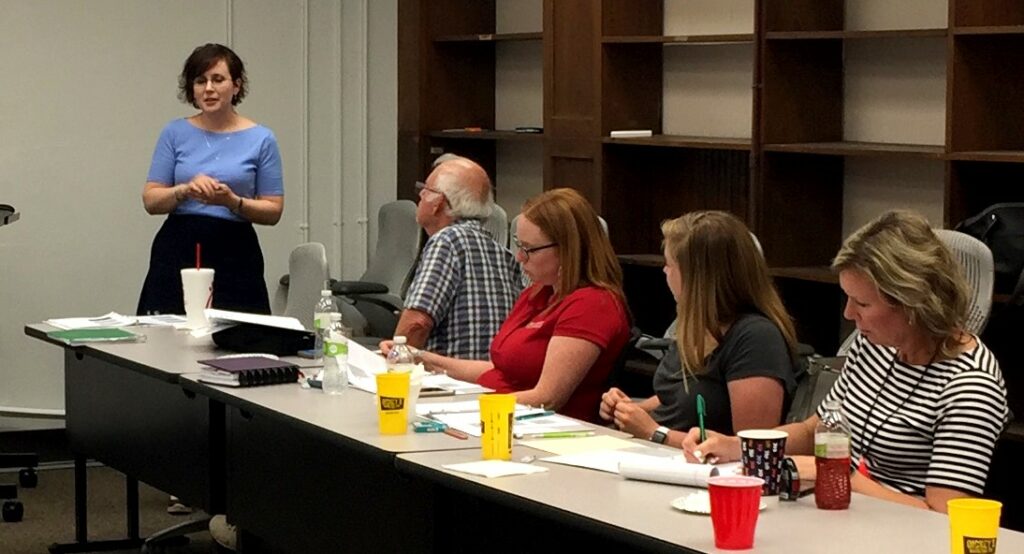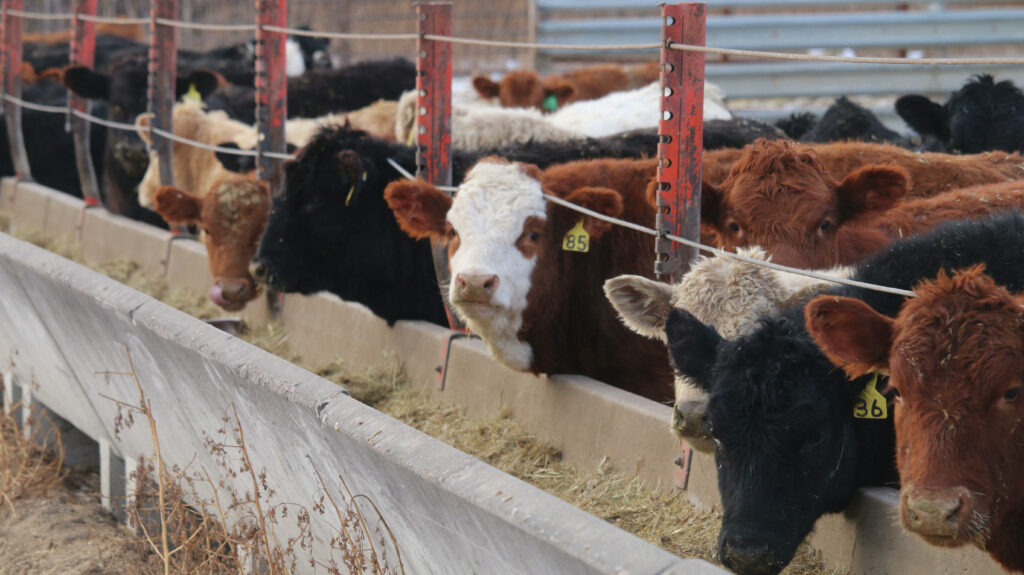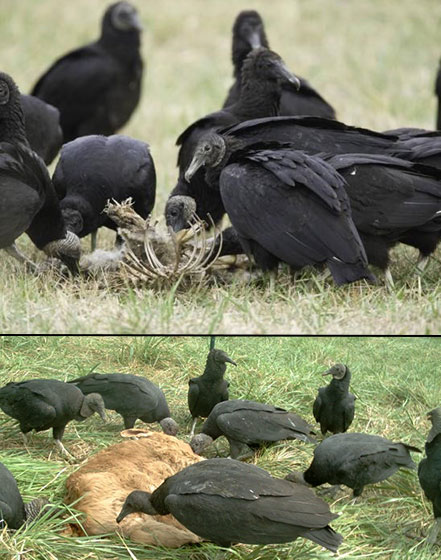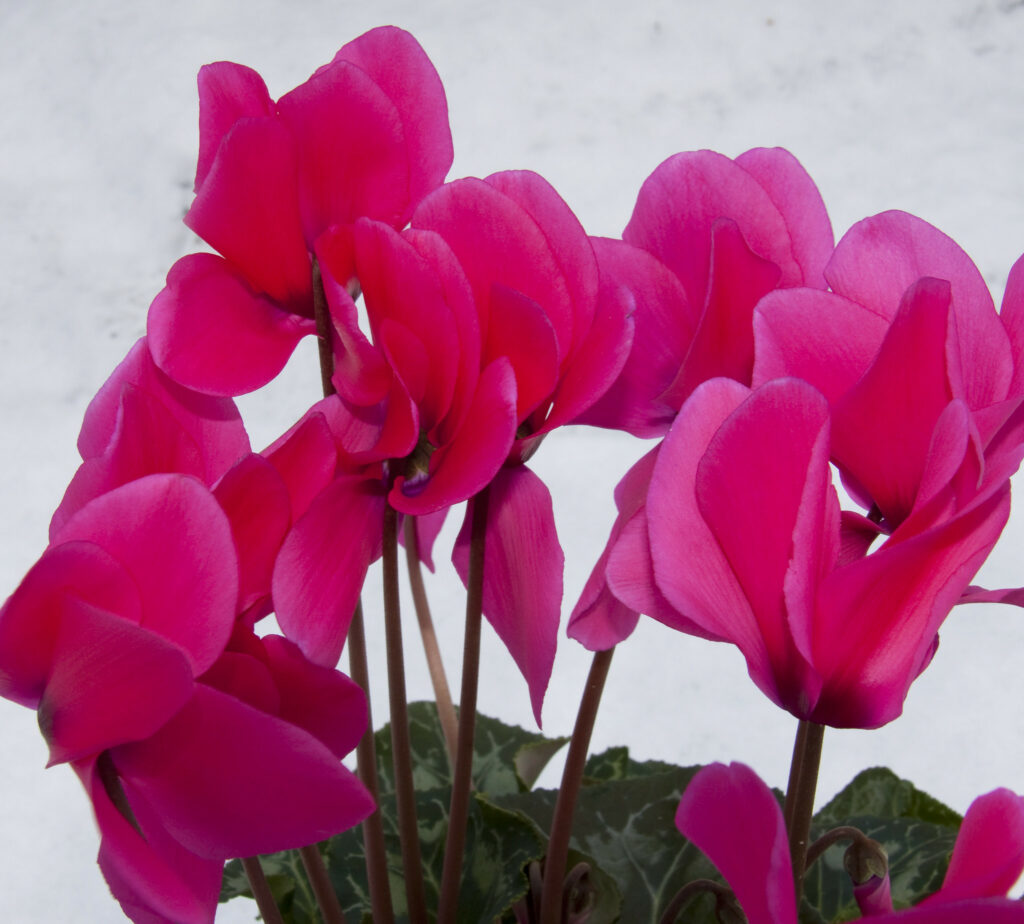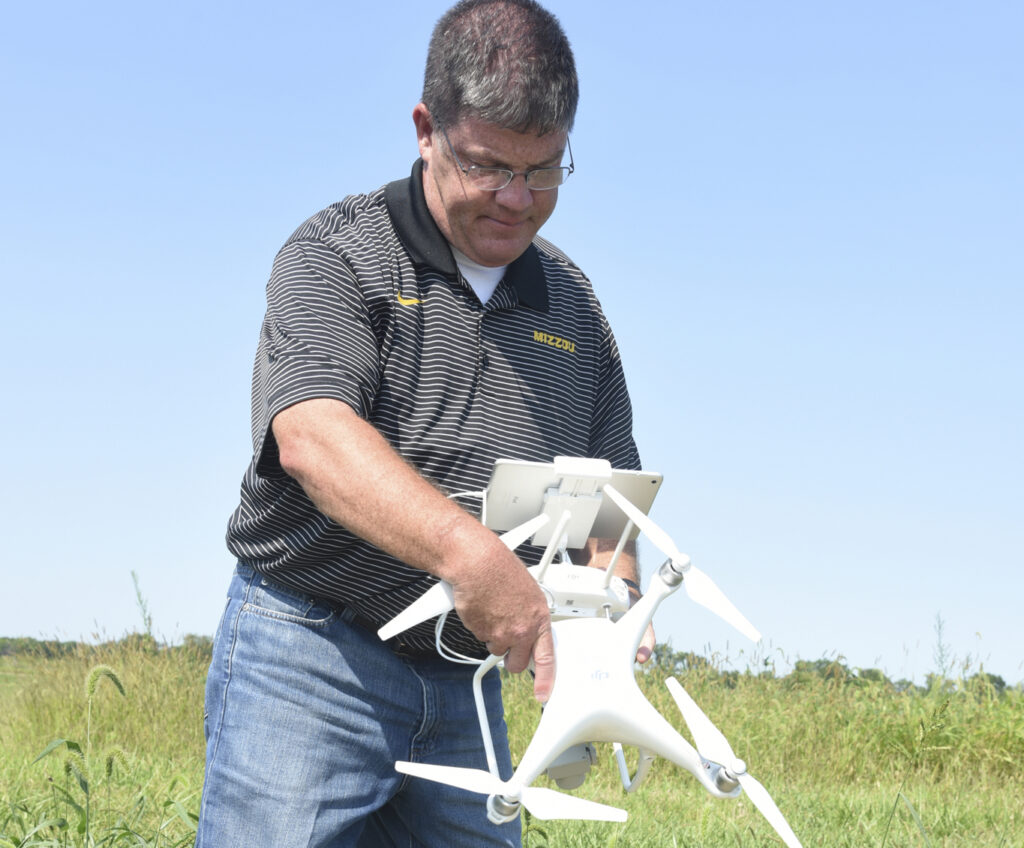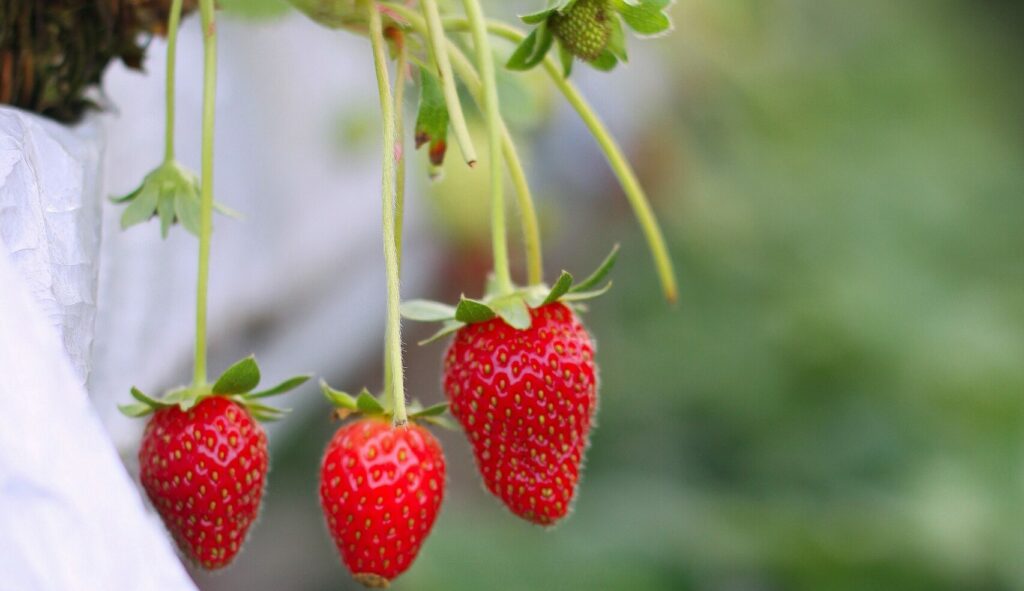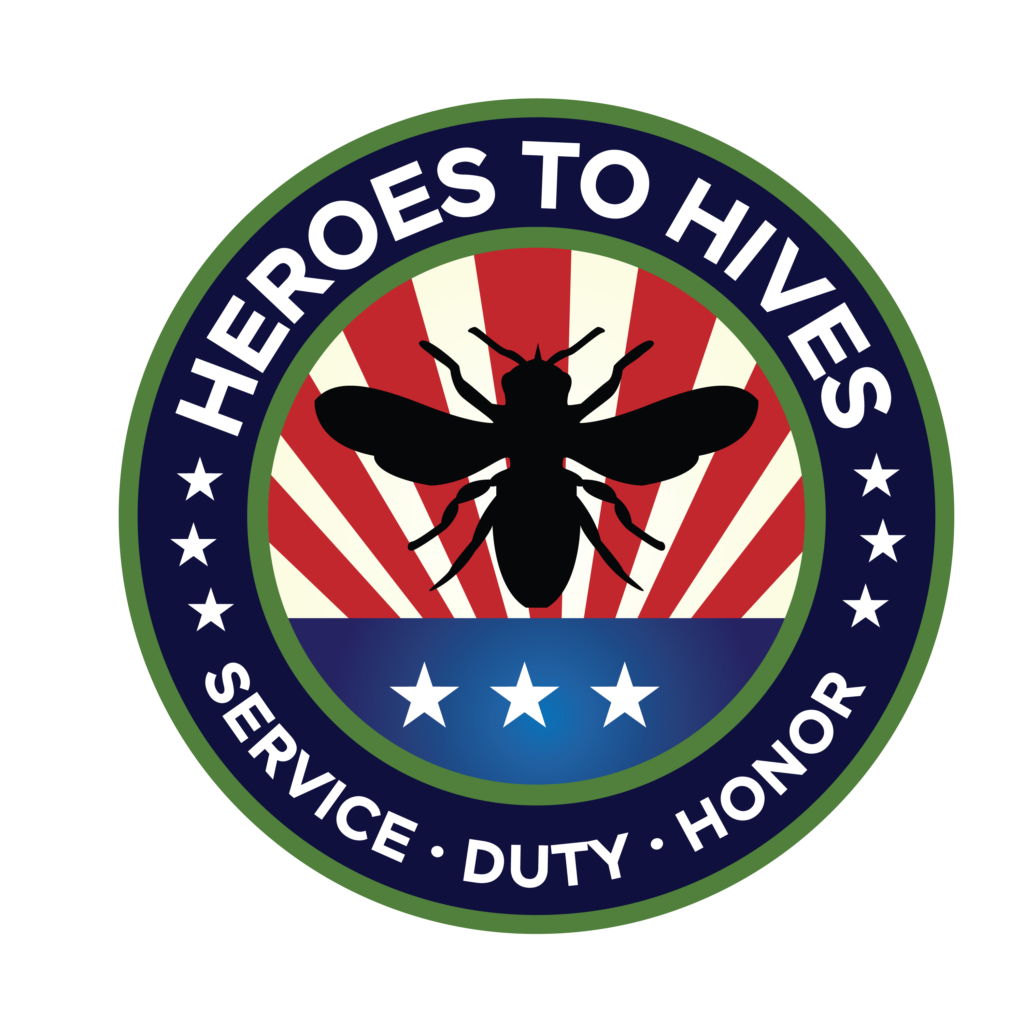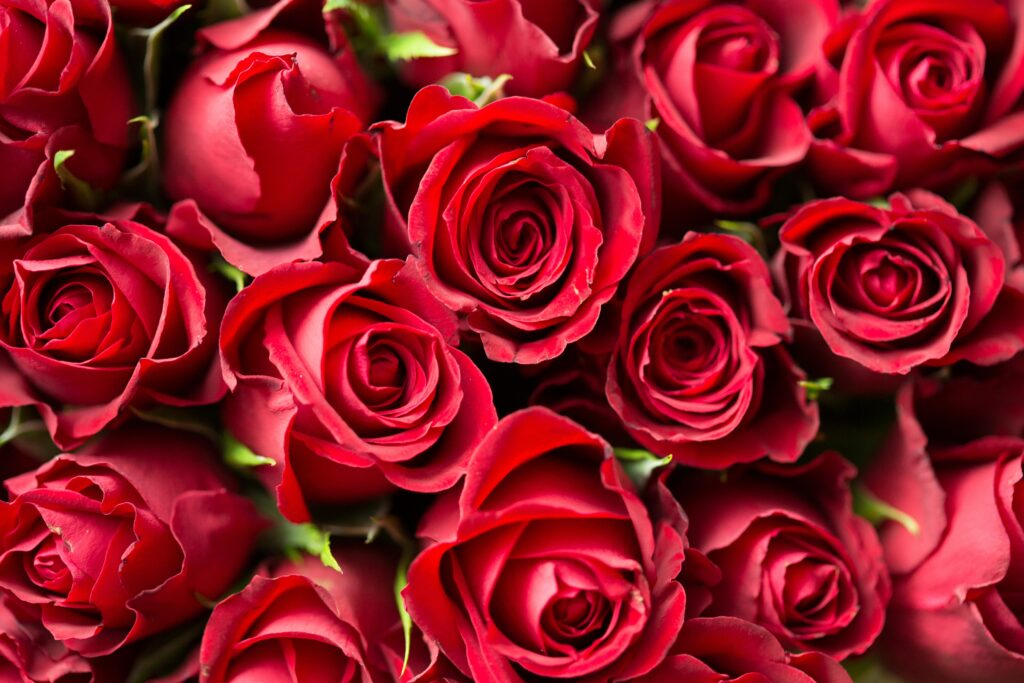University of Missouri Extension
JACKSON, Mo — Beautiful flower gardens begin with the right bedding plants, says Donna Aufdenberg, University of Missouri Extension horticulturist. Before heading to the garden center, research what plants do well in your area, Aufdenberg says. Also consider whether your gardening space is sunny or shady. Aufdenberg has more tips: Aufdenberg and other MU Extension…
Read Full Article COLUMBIA, Mo. — Few things match the culinary delight of fresh peas from the family garden, said University of Missouri Extension horticulturist David Trinklein. Peas are tastiest immediately after being picked, before too much of the sugar converts to starch. For the same reason, peas that mature in cool weather are tastier than those harvested…
Read Full Article SPRINGFIELD, Mo. — Dahlias, the national flower of Mexico, burst with fiestas of colors in late summer and early autumn when other flowers begin to fade. These easy-to-grow annuals are popular choices for cut gardens or the backdrop of borders, says Kelly McGowan, University of Missouri Extension horticulturist. Plant dahlias once the danger of frost…
Read Full Article COLUMBIA, Mo. — April is the season of new beginnings, especially for plant lovers. Outdoors, spring-flowering bulbs, shrubs and trees dot the landscape. Indoors, seasonal plants enliven and brighten dreary rooms, says University of Missouri Extension horticulturist Michele Warmund. Crocus, daffodil, hyacinth and tulips are harbingers of spring, with their foliage emerging from the soil…
Read Full Article COLUMBIA, Mo. — University of Missouri Extension is offering free biosecurity workshops in April and May on how to prevent and respond to disease outbreaks in livestock and poultry operations, including backyard flocks. In a press release, Teng Lim, MU Extension agricultural engineer and a member of the MU Biosecurity Team, said “The importance of…
Read Full Article COLUMBIA, Mo. — University of Missouri researchers are tracking the invasive longhorned tick, which causes weight loss, lost pregnancies and even death in cattle. Researchers from the MU College of Veterinary Medicine found the tick on a Linn County pasture in August 2022. The finding marks the northernmost appearance of the tick in Missouri. It…
Read Full Article GALLATIN, Mo. — Missouri’s unpredictable spring weather makes it tough to decide when to apply preemergent herbicides on lawns, says Manoj Chhetri, University of Missouri Extension horticulturist. Preemergent herbicides, a form of chemical weed control, prevent germinated weed seedlings from growing. Preemergents must be applied at the right time of year to be effective, says…
Read Full Article CLEVER, Mo. – A soil test can help forage producers avoid the costly guessing game of how much fertilizer to buy and apply, says University of Missouri Extension agronomist Tim Schnakenberg. He recommends testing every three or four years. “If you’re not soil testing, you’re already behind,” he said March 7 at the Christian County…
Read Full Article COLUMBIA, Mo. — April is National Gardening Month and a good time to plant a garden, said University of Missouri Extension horticulturist David Trinklein. For those who lacked the motivation in the past to garden, consider the following benefits of this popular pastime. Economic. Vegetable gardening is an excellent way to save on the family…
Read Full Article CENTER, Mo. — When Jan Golian’s husband died of a heart attack in the middle of harvest season in 2004, friends and family helped her get the crop in and the cattle sold. Her husband had always been the caretaker of the farm while she worked as a school librarian and teacher. She knew farm…
Read Full Article CLEVER, Mo. — Load ’em up and ship ’em out. That’s the advice University of Missouri Extension livestock specialist Andy McCorkill gives on “crazy cows.” He spoke to livestock and forage producers March 7 at the Christian County Livestock and Forage Conference in Clever. Post-drought hay shortages have forced cattle producers to cull cows that…
Read Full Article CLEVER, Mo. – Due to poor storage and feeding methods, only about half of Missouri hay reaches the cow’s mouth, says University of Missouri Extension livestock specialist Andy McCorkill. This leads to waste and reduced profits, especially as producers reset their herds post-drought. In a press release McCorkill said, “Make sure your high-value hay gets…
Read Full Article COLUMBIA, Mo. — Get a head start on pastures for the year with good management of spring flush, says University of Missouri Extension state forage specialist Harley Naumann. Early decisions determine pasture health for the rest of the season, Naumann says. Spring flush occurs when conditions exist for cool-season grasses to come out of their…
Read Full Article COLUMBIA, Mo. — In a press release, Missouri Extension horticulturist David Trinklein said, “If ever there was a flower that brings a smile to people’s faces, it has to be the pansy.” This delightful, cool-loving garden flower bears blotched petals that resemble a face smiling back at those who admire it. Midwesterners enjoy pansy’s unique…
Read Full Article COLUMBIA, Mo. — University of Missouri Extension is celebrating the 20th year of Annie’s Project, a national nonprofit to educate and empower women in agriculture. Annie’s Project uses a methodology that builds confidence, develops networks and creates lifelong learners among women farmers, ranchers, growers, landowners and agriculturalists, said Annie’s Project co-CEO Karisha Devlin, an agricultural…
Read Full Article KIRKSVILLE, Mo. — Missouri cattle producers interested in feeding out their cattle are invited to a two-day University of Missouri Extension Feedlot School, March 22-23 in Kirksville. MU livestock specialists will cover nutrition and health management, the performance of calves fed by MU and harvested locally, and the economics of feeding cattle in Missouri. Participants…
Read Full Article COLUMBIA, Mo. — Missouri’s growing population of black vultures has led to increasing attacks on vulnerable livestock. Black vultures often inflict damage to the eyes and tongues of young livestock, kill and feed on domestic fowl and scar animals that survive. A new MU Extension guide provides information for livestock producers to prevent and control…
Read Full Article COLUMBIA, Mo. — University of Missouri Extension pesticide safety specialist Sam Polly encourages farmers and homeowners to observe National Pesticide Safety Education Month in February. Polly and his team work to raise awareness for pesticide safety education and share best practices. In addition to providing training for agricultural workers across the state, Polly also works…
Read Full Article COLUMBIA, Mo. — The gift of hearts and flowers symbolizes the heartfelt admiration of a loved one through the sentiment of flowers. A houseplant that displays both hearts and flowers is cyclamen, said University of Missouri Extension horticulturist David Trinklein. Sold in shades of red, pink and white, many of its species bear nearly perfect…
Read Full Article COLUMBIA, Mo — The nutritional value of eggs remains high despite the steep rise in prices. In a press release, Sarah Wood, University of Missouri Extension state nutrition specialist, said “When considering the protein content of eggs in the diet, eggs are still pretty affordable compared to other animal protein sources.” The USDA national average…
Read Full Article COLUMBIA, Mo. — Free farm succession planning workshops from University of Missouri Extension can help Missourians guide their family farming businesses to the next generation. To help families start the succession planning process and initiate communication, MU Extension will hold Preparing for Farm Succession Planning workshops across the state in March. Six workshops will be…
Read Full Article COLUMBIA, Mo. – Armchair farming may not be here yet, but it’s getting closer. In a press release, Kent Shannon, University of Missouri Extension agricultural engineering specialist said, “Autonomy in agriculture isn’t as far away as you think.” Agriculture is rapidly shifting to technology that can increase land efficiency, reduce labor shortages and streamline food…
Read Full Article COLUMBIA, Mo. — Strawberries are a delectable treat any time of year, but in February they are known as the fruit of love, says University of Missouri Extension horticulturist Michele Warmund. Long before the celebration of Valentine’s Day, the strawberry symbolized love and fertility due to its shape, color and wealth of seeds on the…
Read Full Article COLUMBIA, Mo. — University of Missouri Extension is taking applications from veterans for the third year of the Missouri Heroes to Hives program. The free program trains veterans in beekeeping while also addressing their mental and physical wellness, said MU Extension agronomist Travis Harper. In a press release, Harper said “Research has shown that the…
Read Full Article COLUMBIA, Mo — Valentine’s Day flowers, like love, can stand the test of time if given a little TLC. Call it flor-amore. Proper care and a homemade preservative provide an extended warranty of sorts to make certain flowers last up to twice as long, said University of Missouri Extension horticulturist David Trinklein. Cut flowers age…
Read Full Article 

